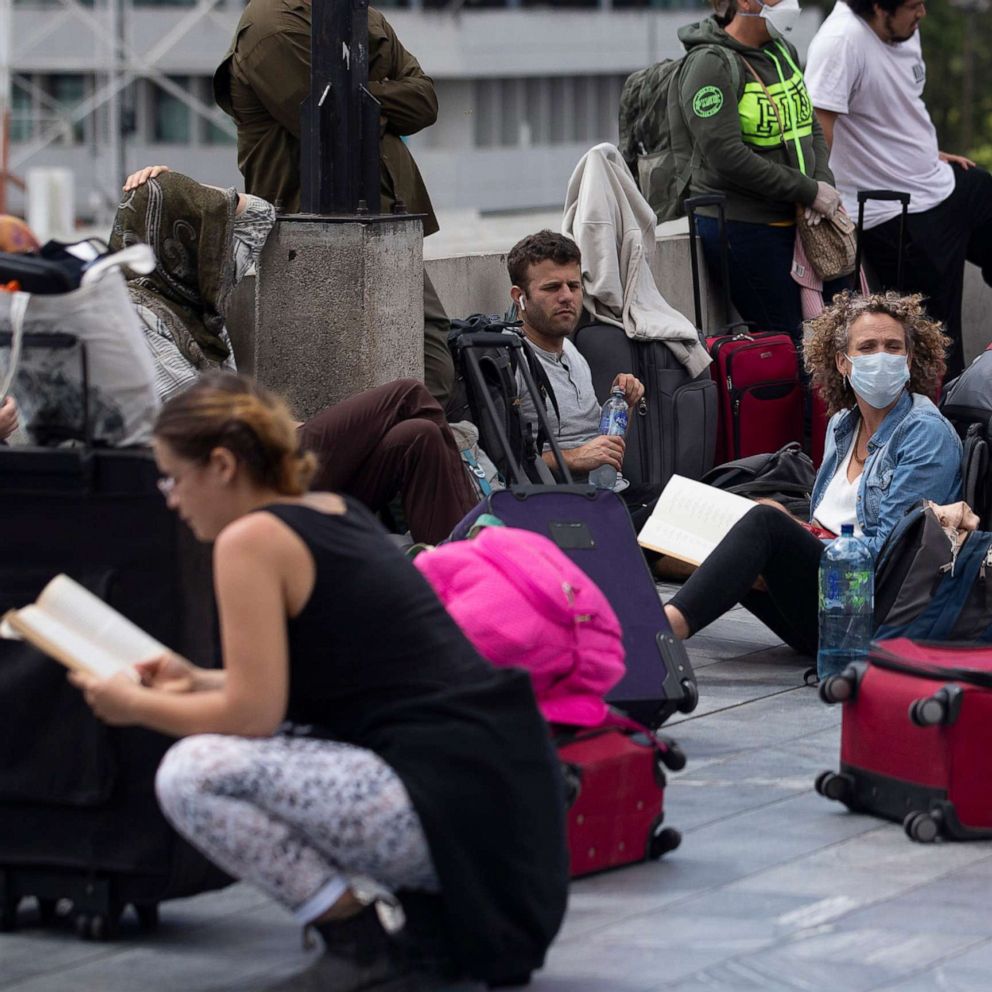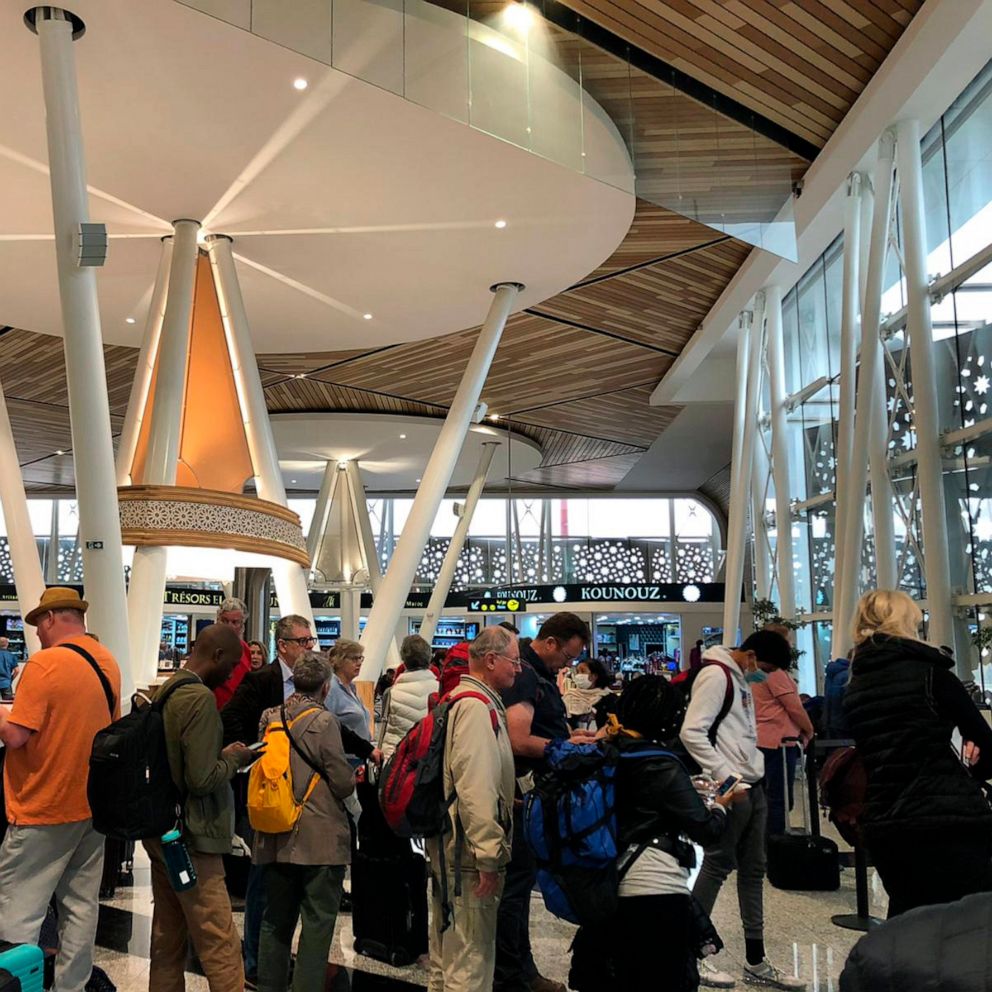Americans still stranded overseas by coronavirus travel bans are frustrated, confused
The State Dept. has been battling Peruvian officials to arrange flights out.
For 10 days now, Kimberly Gleason's two daughters have been seeking help and a way out of Peru.
Julie Gleason was visiting her sister Sarah, who was studying abroad in Cusco, the beautiful ancient Incan capital high up in the Andes mountains, when the Peruvian government closed its borders because of the novel coronavirus pandemic, halting flights and leaving thousands stranded.
Initially, calls and emails to the U.S. embassy went unanswered. Julie, Sarah and Kimberly had all enrolled in the embassy's alert system, but then had to sign up through another system for repatriation flights. Once they were booked on a flight out, it was suddenly halted again because the Peruvian government denied the U.S. permission to land.
Tune into ABC at 1 p.m. ET and ABC News Live at 4 p.m. ET every weekday for special coverage of the novel coronavirus with the full ABC News team, including the latest news, context and analysis.
"Who really is in charge? These poor young people are so stressed, they just want to come home," said Kimberly Gleason. "I don't know who to trust anymore with what's going on. I keep being told one thing, sign up for this thing, now we're doing this way."
But after a tumultuous few days, the two sisters were given boarding passes Wednesday for a flight from Cusco to Lima and then from Lima to Miami -- beginning a long journey home to the Washington, D.C., area.
The Gleasons are one of thousands of families left confused, frustrated and angry by the U.S. government response to the sudden border closures and canceled flights as countries try to stem the virus' spread.
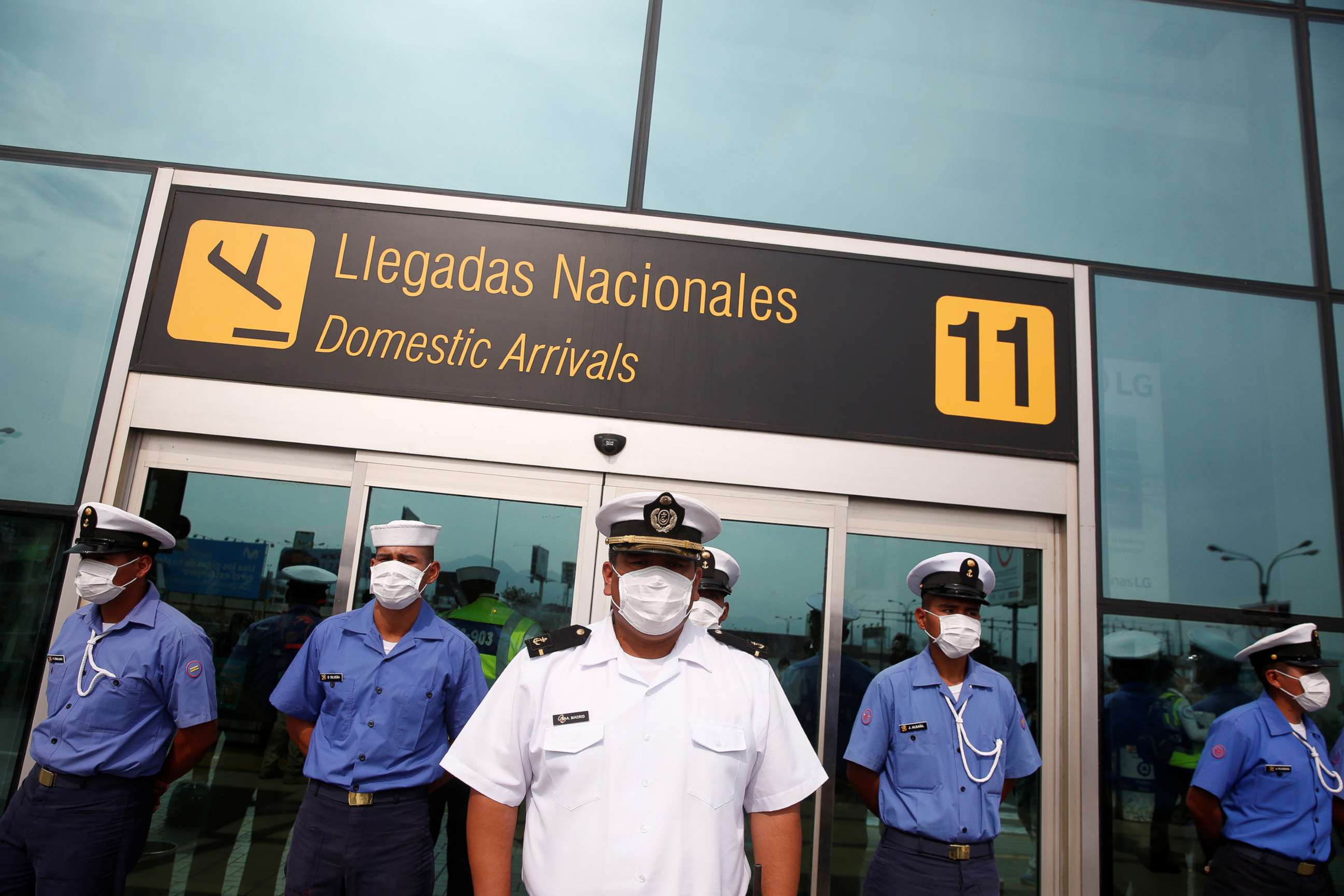
The State Department has repatriated 9,300 Americans from 28 countries, a senior State Department official said Wednesday, an unprecedented evacuation effort that has had to navigate each country's landing rights and health restrictions and employed a variety of means, including government aircraft, cruise ships and chartered flights. At least 66 more chartered flights are planned over the next nine days, the senior official added, with at least 9,000 people coming home on those.
But there are at least 50,000 Americans still stranded, and U.S. embassies and consulates around the world have been overwhelmed by the need. Even as they scrambled to find ways to bring Americans home, local U.S. officials were often not responding to individual calls and emails, leaving many thinking there was no one there to help them.
Instead, they have urged Americans to enroll in their alert system, known as the Smart Traveler Enrollment Program, or STEP. But the system only sends messages when there is an urgent update, so many Americans never heard from it for days. Others were enrolled, but the system stopped sending messages because their listed time in a country had ended, as they expected to be out by then and were still trapped.
The U.S. embassy in Honduras "was useless" and "totally unresponsive," according to Dennis Allen, who led a service trip with the Morgantown Church of Christ in West Virginia to the Central American country. The 16-person mission arrived on March 14, only to be told by contacts back in the U.S. to depart immediately. The next morning, they were unable to get flights out, and the day after that the Honduran government put the country on lock down.
As they searched for ways home, with the help of their senators' and representative's offices, they never heard back from the embassy. Later that week, U.S. officials reached out to give them a letter permitting them to get through Honduran military checkpoints to the airport, but they still had no flight -- even as the U.S. military deployed a C-130 transport aircraft to rescue a women's football team and some embassy staff.
Allen, who had enrolled in STEP before the trip, was never offered spots on that plane, even though he heard that the aircraft left with empty seats. Commercial flights he had booked were also canceled after Honduran authorities extended the lock down, forcing Delta to suspend all flights until May 2. Their group finally got tickets on a United flight chartered by the U.S. embassy for Thursday, he said, after being able to build only one house and distribute some bags of food.
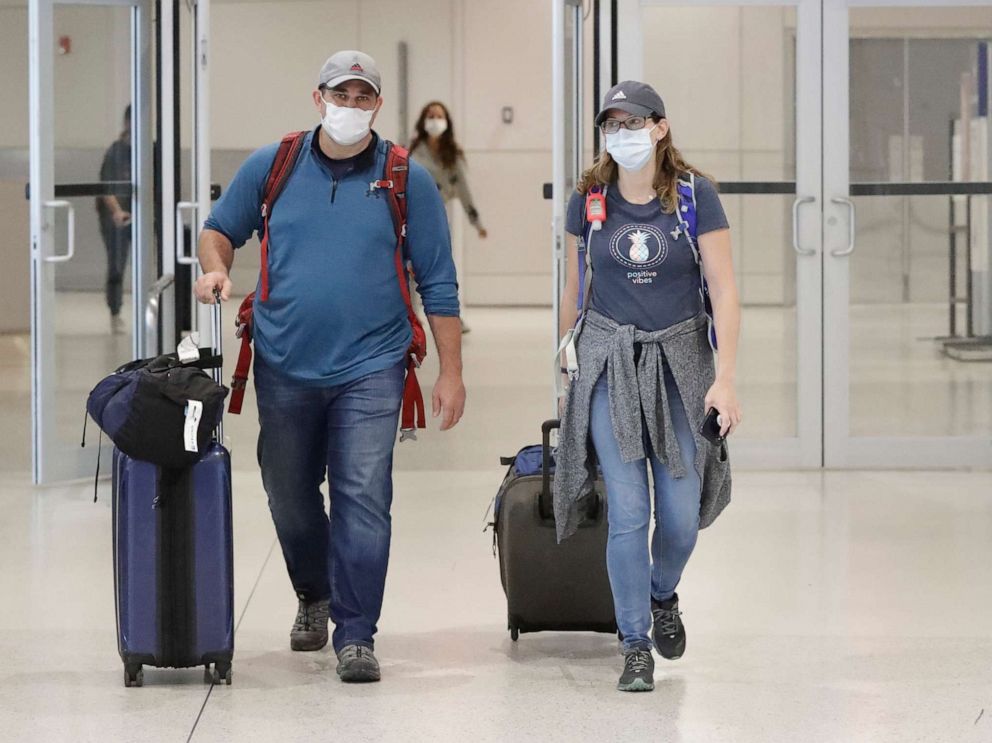
"This is our third set of tickets, and my credit card is maxed out," he said Tuesday. "It's been an emotional roller coaster -- hope and failure, hope and failure, hope and failure."
It's unclear how the U.S. government is deciding to deploy military aircraft in certain cases and who they give seats to, while relying on commercial airliners to charter flights elsewhere, like in Peru where the need is arguably the greatest.
A senior State Department official told ABC News that they rely on the local embassy to tell officials in Washington how many people have requested evacuation in that country, the window of opportunity to get them out, and the local health care infrastructure and number of coronavirus cases.
"We try to get to each of them as quickly as we can, but inevitably, some we'll prioritize based on those issues," they said.
What has been particularly frustrating to many Americans is to watch as other countries deployed government aircraft or arranged chartered flights for their citizens -- as Canada did in Honduras, Argentina did in Peru and France and the United Kingdom did in Morocco -- even as the U.S. continued to tell its citizens to take commercial flights that didn't exist anymore.
But once many Americans were manifested on a flight and arrived at the airport, they offered praise for the U.S. consular officers they encountered.
"The State Department did a great job getting us through the process and getting on a flight," Joyce Graham said last Friday, after days of being given the run around in Morocco and desperately seeking an evacuation plan from the U.S. embassy.
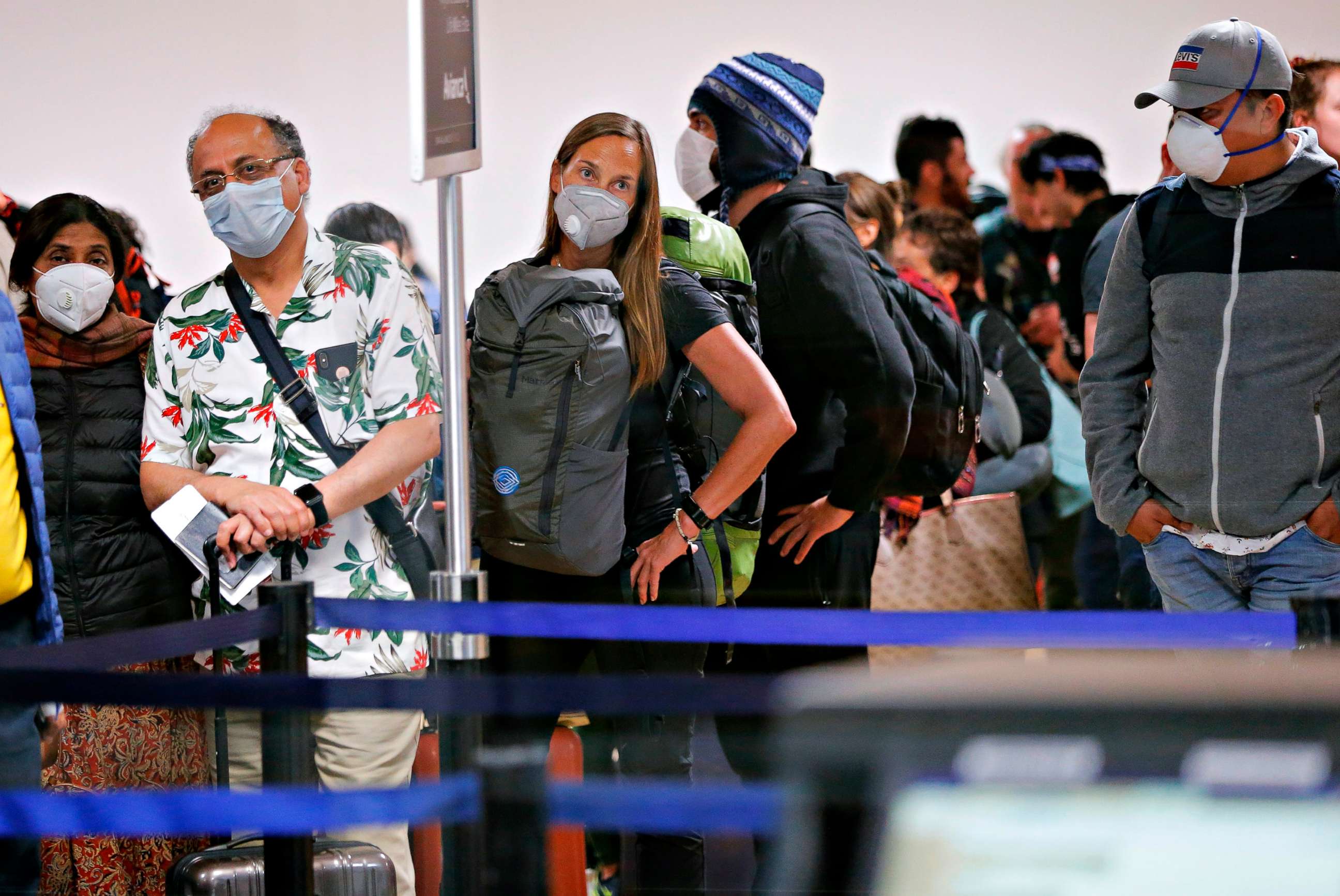
In Peru, however, the local government, overwhelmed by its coronavirus outbreak, has been creating more challenges. Two sources familiar with the situation told ABC News that Peruvian authorities denied the U.S. permission to land two chartered flights on Tuesday, even forcing an American Airlines plane to turn back to Miami while in flight to Lima. Americans who were ticketed for the flights were told by the embassy to shelter in place instead, leaving many thinking that the embassy canceled the flight.
A State Department official later confirmed that the planes were denied permission by the Peruvian government, saying that the U.S. had deployed a senior level official to the country to oversee the repatriation effort and to join others in "advocating vigorously for the return of our citizens."
That pressure seems to have worked. Those two flights scrapped on Tuesday were on track to go ahead Wednesday, with Julie and Sarah Gleason ticketed to be on board.
"Everything seems to be moving along and going in the right direction finally," their mother said Wednesday. "I'm very giddy, but nerves are on edge until I know my daughters and the other Americans have arrived to their hometowns."
ABC News' Mina Kaji contributed to this report.
What to know about coronavirus:
- How it started and how to protect yourself: coronavirus explained
- What to do if you have symptoms: coronavirus symptoms
- Tracking the spread in the US and Worldwide: coronavirus map
